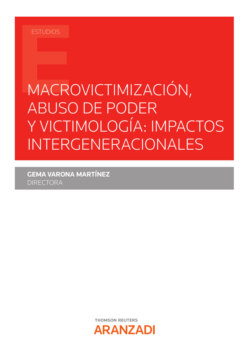Читать книгу Macrovictimización, abuso de poder y victimología: impactos intergeneracionales - Gema Varona Martínez - Страница 24
На сайте Литреса книга снята с продажи.
1.1. Specific status and treatment for victims of terrorism
ОглавлениеWithin the EU, the specific nature of victims of terrorism has been discussed on several occasions, pointing out their vulnerability, their symbolic value and their instrumentalisation by terrorists. In this regard, the 2002 Framework Decision on the fight against terrorism provides that “Victims of terrorist offences are vulnerable, and therefore specific measures are necessary with regard to them”110. Similarly, the 2017 Directive on combating terrorism, which replaces the 2002 Framework Decision, encourages Member States to adopt measures of protection, support and assistance responding to the “specific needs” of victims of terrorism111.
The 2012 Directive of the European Parliament and of the Council establishing minimum standards on the rights, support and protection of victims of crime also seems to recognize the specificity of victims of terrorism by stating that: “Victims of terrorism have suffered attacks that are intended ultimately to harm society. They may therefore need special attention, support and protection due to the particular nature of the crime that has been committed against them. Victims of terrorism can be under significant public scrutiny and often need social recognition and respectful treatment by society. Member States should therefore take particular account of the needs of victims of terrorism, and should seek to protect their dignity and security”112. In addition, the 2012 Directive notes that victims of terrorism tend to suffer from a high rate of secondary victimization, intimidation and reprisals, requiring, where appropriate, specific protection measures113.
More recently, the European Parliament Resolution of 12 December 2018 on findings and recommendations of the Special Committee on Terrorism114 stresses that “victims of terrorism have a very specific status, and meeting their needs is not only a legal obligation under EU, international and national law but also a responsibility for the whole of our societies”115. The Parliament also notes that to date there is no defined legal status for victims of terrorism at European level, which would hinder their access to assistance or compensation right116. Therefore, the Parliament calls on the Commission to put forward a legislative proposal that would enable them to access assistance services117.
